Transformative pedagogy is an innovative teaching method that encourages students to critically examine their values, beliefs, knowledge, and attitudes. The goal is to develop a reflective knowledge base, an appreciation for multiple perspectives, and critical thinking. Transformative pedagogy can also help teachers and students develop their identities as whole people with relationships based on interdependence and moral values.
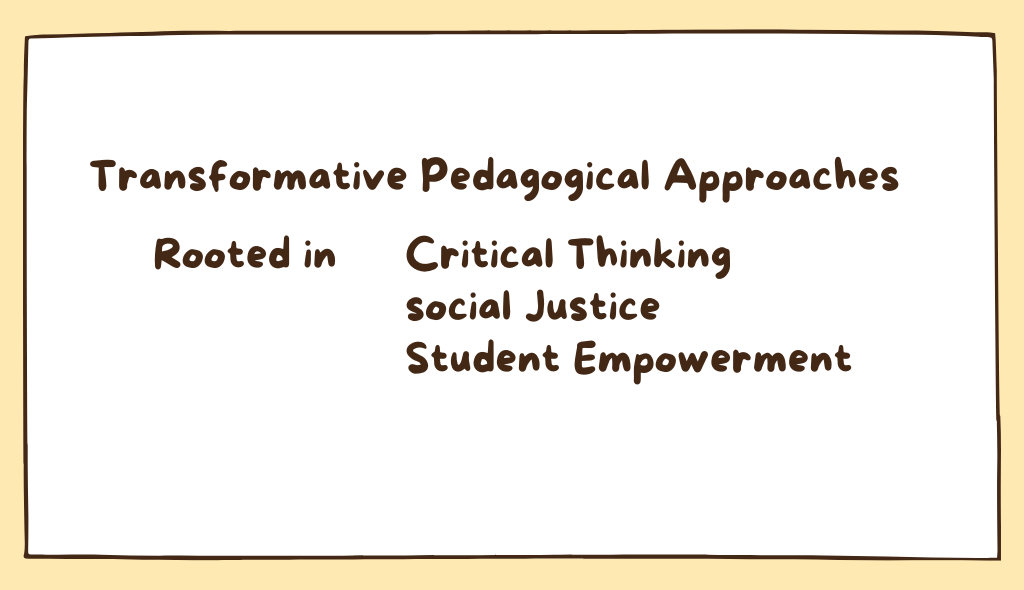
Education is a dynamic and ever-evolving field, constantly adapting to meet the changing needs of learners and societies. In today’s rapidly changing world, characterised by technological advancements, globalisation, and interconnectedness, the need for innovative pedagogical approaches is more pressing than ever. Traditional teaching methods, while valuable, often fall short of addressing the complex challenges and demands of the 21st century.
Transformative pedagogical approaches, rooted in the principles of critical thinking, social justice, and student empowerment, are emerging as the driving force behind educational reform. In this article, we will explore the innovative pedagogical approaches shaping the future of education.
Understanding the Essence of Transformative Pedagogy
Transformative pedagogy is not merely a new set of teaching techniques; it represents a paradigm shift in education. It moves beyond the traditional teacher-centered model, where knowledge is passively transferred from the instructor to the student, towards a more student-centered approach. In transformative pedagogy, learners are not merely recipients of information but active participants in the construction of knowledge. They are encouraged to engage in critical thinking, question assumptions, challenge norms, and explore diverse perspectives.
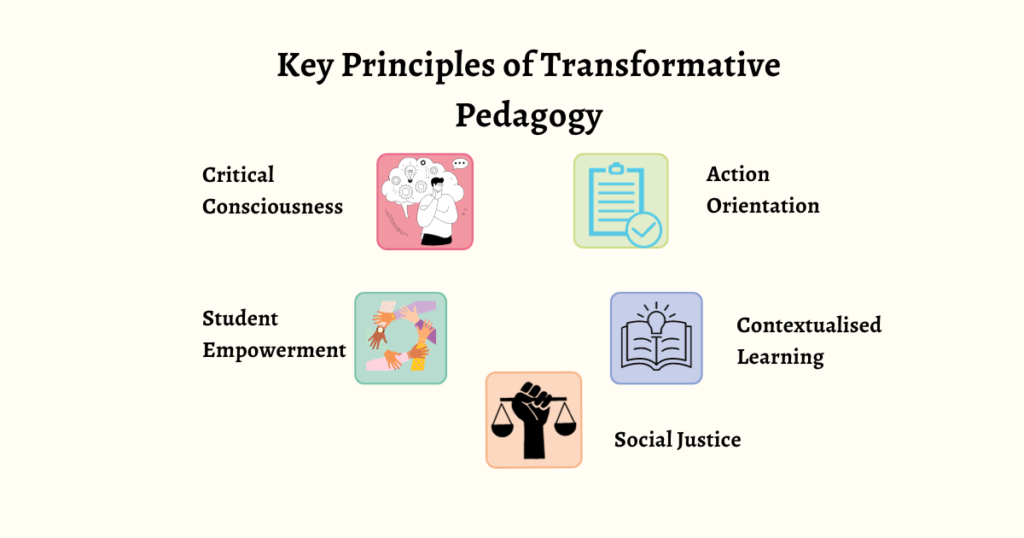
Key Principles of Transformative Pedagogy
- Critical Consciousness
Transformative pedagogy cultivates critical consciousness in learners, empowering them to question assumptions, challenge norms, and examine power structures. This involves developing an awareness of social inequalities, questioning biases and prejudices, and recognising the role of power dynamics in shaping society. By fostering critical consciousness, transformative pedagogy encourages students to become active agents of social change.
- Student Empowerment
Students are not mere recipients of knowledge but active participants in the learning process. Transformative pedagogy promotes student empowerment by providing opportunities for self-directed learning, encouraging collaboration, and valuing student voices. Students are encouraged to take ownership of their learning, setting their own goals, making choices, and evaluating their progress. This empowerment fosters a sense of agency and responsibility, enabling students to become lifelong learners.
- Social Justice
Transformative pedagogy is deeply intertwined with social justice, aiming to create a more equitable and just society. It encourages students to examine social inequalities, understand the root causes of injustice, and advocate for positive change. This involves developing an understanding of different forms of oppression, recognising the impact of social structures on individuals and communities, and challenging discriminatory practises. By promoting social justice, transformative pedagogy empowers students to become agents of social transformation.
- Contextualised Learning
Learning is not confined to textbooks and classrooms. Transformative pedagogy connects learning to real-world contexts, allowing students to apply their knowledge to address social, environmental, and economic challenges. This involves incorporating real-world issues into the curriculum, providing opportunities for community engagement, and encouraging students to apply their knowledge to solve practical problems. By contextualising learning, transformative pedagogy fosters a deeper understanding of concepts and the ability to make a positive impact on the world.
- Action Orientation
Transformative pedagogy does not end with understanding; it emphasises action. Students are encouraged to apply their knowledge and skills to create positive change in their communities and the world at large. This involves translating knowledge into action, engaging in community service projects, and advocating for social justice. By promoting action orientation, transformative pedagogy empowers students to become changemakers and contribute to a more just and equitable society.
Examples of Transformative Pedagogical Approaches
In the dynamic landscape of education, the quest for innovation in pedagogical approaches has become paramount. As we navigate the ever-evolving realm of teaching and learning, the spotlight is on “Pedagogical Approaches” and, in particular, the transformative strides they are making in shaping the future of education.

- Problem-Based Learning (PBL): Students work collaboratively to solve real-world problems, fostering critical thinking, communication, and problem-solving skills. This approach encourages students to apply their knowledge to real-world scenarios, developing a deep understanding of concepts and the ability to think creatively and critically.
2. Service-Learning: Students engage in community service projects, integrating academic learning with practical application and social responsibility. This approach fosters a sense of civic engagement and social justice as students learn to apply their knowledge and skills to address real-world problems and contribute to their communities.
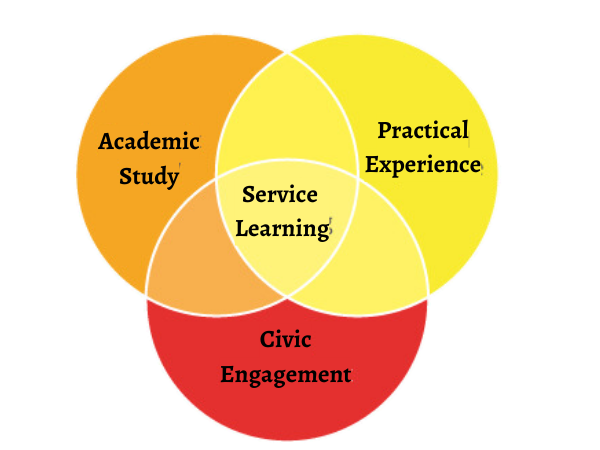
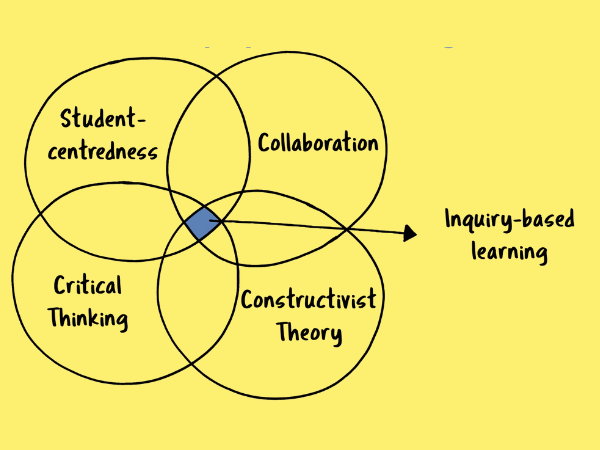
3. Inquiry-Based Learning: Students take the lead in exploring questions, conducting research, and drawing their own conclusions, developing independence, curiosity, and self-directed learning. This approach encourages students to become active investigators and thinkers, fostering a lifelong love of learning and the ability to think critically and independently.
4. Cooperative Learning: Students work together in small groups, promoting teamwork, communication, and peer-to-peer learning. This approach fosters a sense of collaboration and shared responsibility, as students learn to work together effectively to achieve common goals.
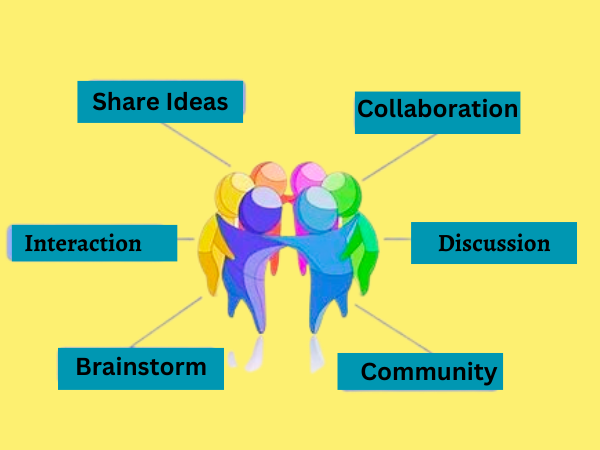
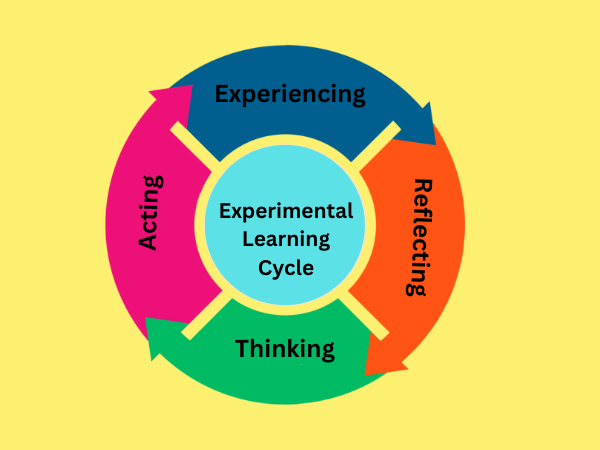
5. Experiential Learning: Students learn through hands-on experiences, simulations, and real-world projects, enhancing engagement, retention, and application of knowledge. This approach provides students with opportunities to apply their knowledge in practical settings, fostering a deeper understanding of concepts and the ability to adapt to new situations.
Impact of Transformative Pedagogy
Transformative pedagogy has a profound and multifaceted impact on both learners and society. It empowers students to become critically thinking, socially responsible, and engaged citizens capable of addressing the complexities of the 21st century. It fosters a more equitable and just society by promoting understanding, empathy, and action for positive change.
Impact on Learners
- Develops Critical Thinking Skills: Transformative pedagogy cultivates critical thinking skills in learners, enabling them to analyse information, question assumptions, and form their own judgments. This empowers them to make informed decisions, solve problems creatively, and engage in meaningful discourse.
- Promotes Social Responsibility: Transformative pedagogy instills a sense of social responsibility in students, encouraging them to become active participants in addressing social and environmental issues. They develop an awareness of social inequalities and a commitment to advocating for positive change.
- Enhances Engagement and Motivation: Transformative pedagogy fosters a more engaging and motivating learning environment where students are actively involved in the construction of knowledge. This leads to increased interest, deeper understanding, and a greater sense of ownership over their learning.
- Nurtures Self-Directed Learning: Transformative pedagogy empowers students to become self-directed learners, capable of setting goals, managing their time, and taking responsibility for their own learning. This prepares them for lifelong learning and adaptability in an ever-changing world.
- Promotes Personal and Social Growth: Transformative pedagogy fosters personal and social growth in students, helping them develop their identity, build relationships, and contribute to their communities. They become more aware of their strengths and weaknesses, learn to collaborate effectively and develop a sense of empathy and compassion.
Impact on Society
- Creates a More Informed and Engaged Citizenry: Transformative pedagogy contributes to a more informed and engaged citizenry, as students develop the skills and dispositions necessary to participate actively in democratic processes. They are more likely to vote, advocate for their communities, and hold their leaders accountable.
- Promotes Social Justice and Equity: Transformative pedagogy promotes social justice and equity by challenging societal biases and inequalities. Students learn to recognize and challenge discrimination, advocate for marginalized groups, and work towards a more just and equitable society.
- Encourages Sustainable Practices: Transformative pedagogy encourages sustainable practices by fostering an understanding of environmental issues and empowering students to take action to protect the environment. They learn to make informed choices, conserve resources, and promote sustainable lifestyles.
- Fosters Innovation and Creativity: Transformative pedagogy fosters innovation and creativity by encouraging students to think outside the box, challenge conventional thinking, and explore new ideas. This leads to the development of creative solutions to real-world problems and advancements in various fields.
- Promotes Cultural Understanding and Global Citizenship: Transformative pedagogy promotes cultural understanding and global citizenship by exposing students to diverse perspectives and encouraging them to engage with people from different backgrounds. They develop an appreciation for cultural differences, gain cross-cultural communication skills, and become responsible global citizens.
Read More: What is a Smart City?
Charting the Path Forward: The Future of Education
As we navigate the ever-evolving landscape of education, it is becoming increasingly clear that traditional pedagogical approaches are no longer sufficient to prepare students for the demands of the 21st century. The world is changing at an unprecedented pace, characterized by technological advancements, globalization, and interconnectedness. To equip our youth with the skills and dispositions necessary to thrive in this dynamic world, we must embrace transformative pedagogical approaches.
Transformative pedagogy represents a paradigm shift in education, moving away from teacher-centered, knowledge-transmission models towards student-centered, collaborative, and inquiry-based learning environments. It emphasises critical thinking, problem-solving, social responsibility, and action for positive change. This shift is not merely a passing trend; it is a fundamental transformation of how we approach education, one that is essential for preparing students to become engaged, informed, and responsible citizens.
The future of education is not about acquiring a static set of facts and figures; it is about developing the ability to think critically, adapt to change, and contribute meaningfully to society. Transformative pedagogy fosters these essential skills by encouraging students to question assumptions, challenge norms, and explore diverse perspectives. It empowers them to become active participants in their own learning, take ownership of their education, and develop a lifelong love of learning.
By embracing transformative pedagogy, we can cultivate a generation of individuals who are not only knowledgeable but also critically engaged, socially responsible, and equipped to make a positive impact on the world. These individuals will be the driving force behind innovation, social progress, and a more just and equitable society.
Key Steps for Embracing Transformative Pedagogy
- Educator Professional Development: Provide ongoing professional development opportunities for educators to learn about, understand, and implement transformative pedagogical approaches. This includes workshops, seminars, and mentorship programmes that foster a deep understanding of the principles and practises of transformative pedagogy.
- Curriculum Transformation: Revise and adapt curricula to align with transformative pedagogical principles. This involves incorporating real-world contexts, promoting critical thinking, and emphasising student-centered learning activities.
- Supportive Learning Environments: Create supportive learning environments that foster collaboration, creativity, and a sense of community. This includes providing access to technology, encouraging open communication, and celebrating diverse perspectives.
- Assessment and Evaluation: Redesign assessment and evaluation methods to reflect the goals of transformative pedagogy. This includes focusing on critical thinking skills, problem-solving abilities, and self-reflection rather than rote memorization and standardised testing.
- Community Engagement: Engage with parents, community members, and stakeholders to create a shared vision for transformative education. This involves fostering open communication, seeking feedback, and building partnerships that support the implementation of transformative pedagogical approaches.
Conclusion
The future of education is bright, filled with innovative teaching methods, diverse learning environments, and a renewed commitment to student empowerment and social responsibility. By embracing transformative pedagogical approaches, we can shape a future where education is not just about acquiring knowledge but about becoming active participants in creating a more just, equitable, and sustainable world.
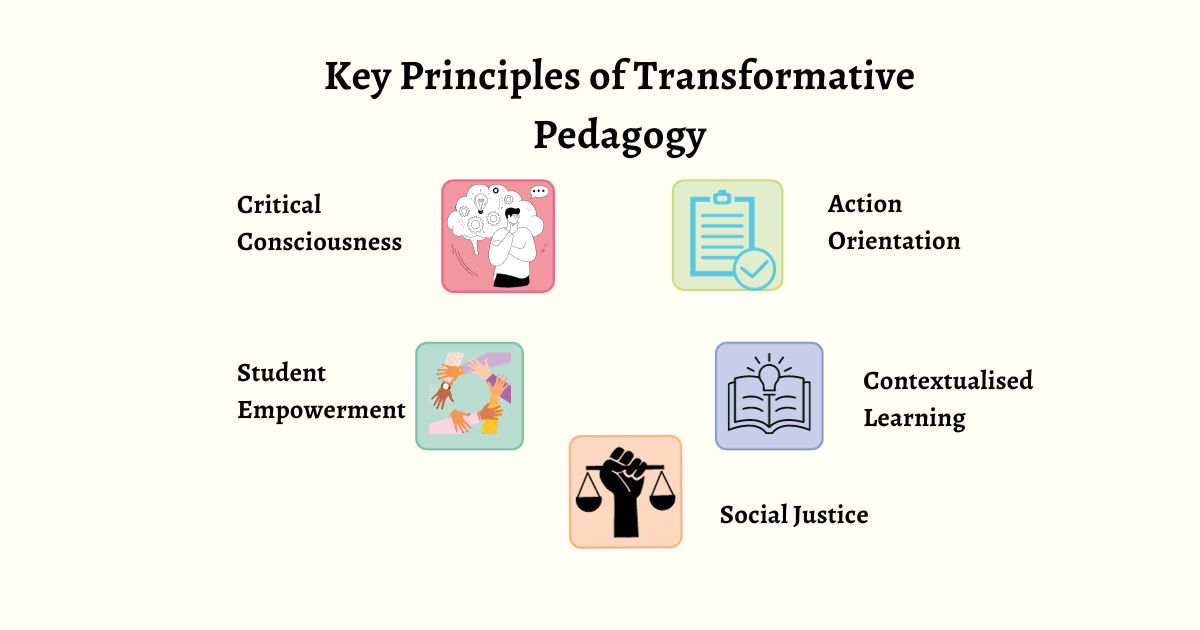
Leave a Reply
You must be logged in to post a comment.